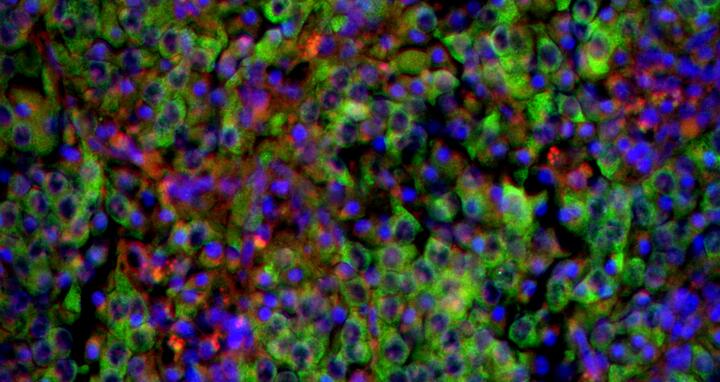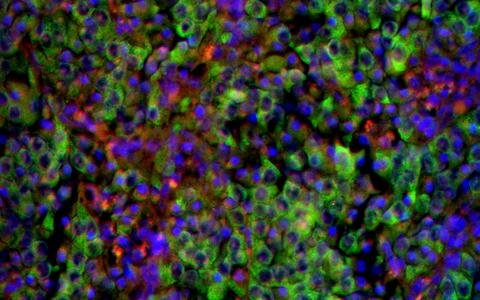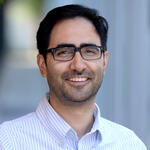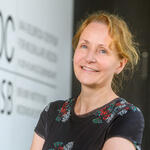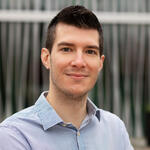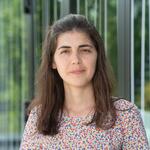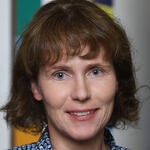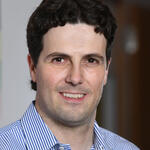Examining childhood cancer cell by cell
Tumors found in the abdominal region or spine, called neuroblastomas, begin when specific cells degenerate during the earliest stages of development, sometimes well before birth. Children up to the age of six are affected by this cancer, which can vary markedly from person to person: in some cases, the tumors regress spontaneously; in others, they grow aggressively. Although aggressive forms are usually successfully treated initially, they frequently relapse and spread to other organs. More than half the children diagnosed with aggressive neuroblastomas do not survive the disease.
Neuroblastoma cells (green) in the adrenal gland. Cell nuclei are stained blue.
A new Collaborative Research Centre, "Decoding and Targeting Mechanisms of Neuroblastoma Evolution”, will focus on how neuroblastomas progress in individuals so that tailored therapies could help to prevent tumor relapse. The collaboration is led by Professor Angelika Eggert from Charité - Universitätsmedizin Berlin, and includes scientists from the Max Delbrück Center, the Experimental and Clinical Research Center (ECRC), the Berlin Institute of Health at Charité (BIH), the University of Cologne, the Julius-Maximilians-University Würzburg (JMU), the Eberhard Karls University Tübingen, and the German Cancer Research Center (DKFZ). They will receive 13.5 million euros over four years from the German Research Foundation (DFG).
Developing Novel Therapies
Researchers hypothesize that cancer drugs affect each cell type in a neuroblastoma tissue differently. And they think that a neuroblastoma that has migrated to a new place in the body will undergo distinct changes to each cell type. This complex process of tumour development means the scientists plan to carry out a meticulous analysis of neuroblastoma tissue at the cellular level.
Professor Anton Henssen, a paediatric oncologist at the Experimental and Clinical Research Center (ECRC), a collaborative institution of Charité and the Max Delbrück Center, will examine small genetic rings found outside chromosomes in tumor cells. "We want to determine if and how we could harness circular DNA for therapies," says Henssen.
Using state-of-the-art methods, they will catalog the events in tumor cells that involve DNA, RNA and proteins. They will harness artificial intelligence to identify novel targets for precise combination therapies.
Further information
- DFG to Fund Eleven New Collaborative Research Centres | Press release by the DFG (19.05.2023)
- Neuer Sonderforschungsbereich an der Charité | Press release by the Charité (02.06.2023; only in German)
- How cancer genes become independent
Research labs involved at the Max Delbrück Center
The Max Delbrück Center team includes researchers from 16 labs specializing in tumor and systems biology, vascular biology, single-cell analysis and data sciences.

